News

NPP's Samantha Ranasinghe Fills Vacant Parliamentary Seat
Samantha Ranasinghe of the National People's Power (NPP) has been appointed as a Member of Parliament, filling the seat left vacant by the passing of Kosala Nuwan Jayaweera.
The appointment was officially announced by the Election Commission.
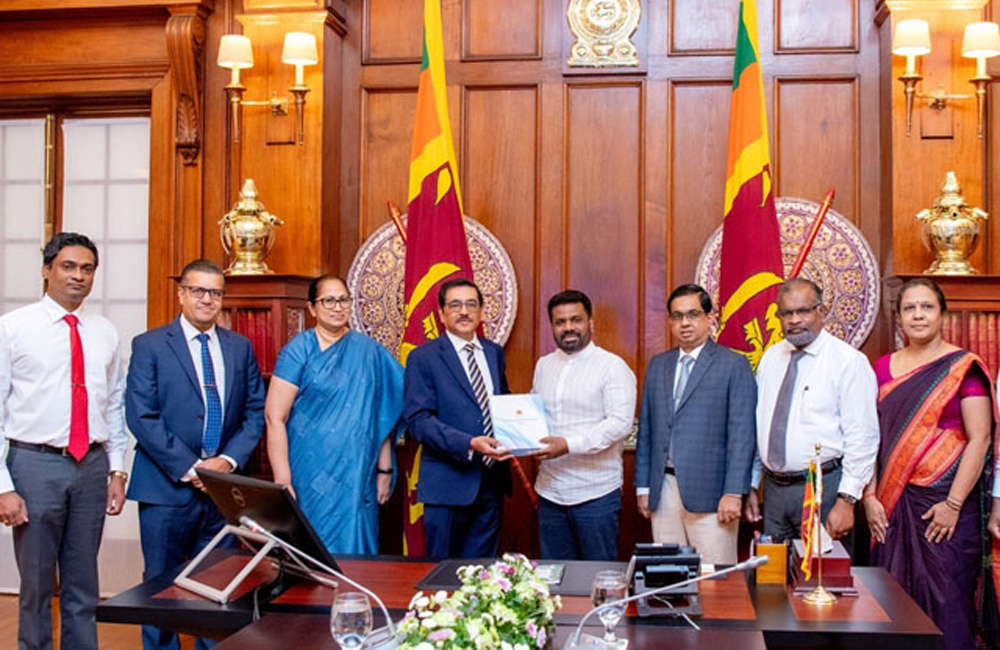
Sri Lanka's 2024 Recovery Report Given To President
The Central Bank of Sri Lanka today (07) presented its flagship publication, the Annual Economic Review for 2024 (AER 2024), to President and Minister of Finance, Anura Kumara Dissanayake.
The report highlights the steady progress of Sri Lanka’s economic recovery following the country’s most severe downturn in recent history.
The report was officially handed over by Dr. P. Nandalal Weerasinghe, Governor of the Central Bank, during a special ceremony held at the Presidential Secretariat.
AER 2024 comprises four main chapters: Macroeconomic Developments, Conditions of the Financial System, Review of Central Bank’s Policies, and Macroeconomic Outlook.
According to the Review, the Sri Lankan economy showed significant signs of recovery in 2024, following the deep economic crisis experienced two years ago.
The recovery trajectory, though challenging, has been notably faster than that of many other debt-distressed countries. Improvements in economic activity, a partial resurgence in purchasing power, and reduced uncertainty are among the key positive indicators noted in the report.

Mervyn Silva Further Remanded Until April 21
Former Minister Mervyn Silva has been remanded until April 21 by Mahara Magistrate Kanchana N. Silva.
The decision was made during a court session today, where Silva's bail application was rejected.
Silva is facing charges under the Public Property Act for allegedly selling a government-assigned land to a private buyer.
The court also issued warrants for the arrest of former State Minister Prasanna Ranaweera and another suspect, who are currently in hiding.

Welikada OIC faces transfer over suspect’s death in police custody
Acting Inspector General of Police (IGP) Priyantha Weerasooriya has recommended the transfer of the Officer-in-Charge (OIC) of the Welikada Police Station following the death of a suspect who was hospitalized while in police custody.
The incident occurred on April 1, 2025, when a 26-year-old man, arrested for allegedly entering a house in the Nawala area under the Welikada Police Division, reportedly displayed riotous behavior while in custody. He was later admitted to the National Institute of Mental Health in Mulleriyawa, where he died the following morning.
In order to ensure a fair and impartial investigation, the recommendation for the OIC’s transfer was submitted to the Ministry of Public Security and Parliamentary Affairs on April 6, 2025, for onward referral to the National Police Commission.
A police sergeant and a constable have also been suspended for negligence of duty related to the incident.

Former State Minister Pilleyan arrested
Former State Minister and TMVP leader Sivanesathurai Chandrakanthan, widely known as ‘Pilleyan’, has been arrested by the Criminal Investigation Department (CID).
The reason for the arrest has not been officially disclosed yet.
Further details are expected.

MP Kosala Jayaweera Passes Away
National People’s Power (NPP) Parliamentarian Kosala Nuwan has passed away at the age of 38, hospital sources confirmed.
He was reportedly admitted to the Karawanella Hospital following a sudden heart attack and was pronounced dead shortly after.
Kosala Nuwan was a newly elected MP and a prominent youth figure within the NPP.
Further details are awaited.
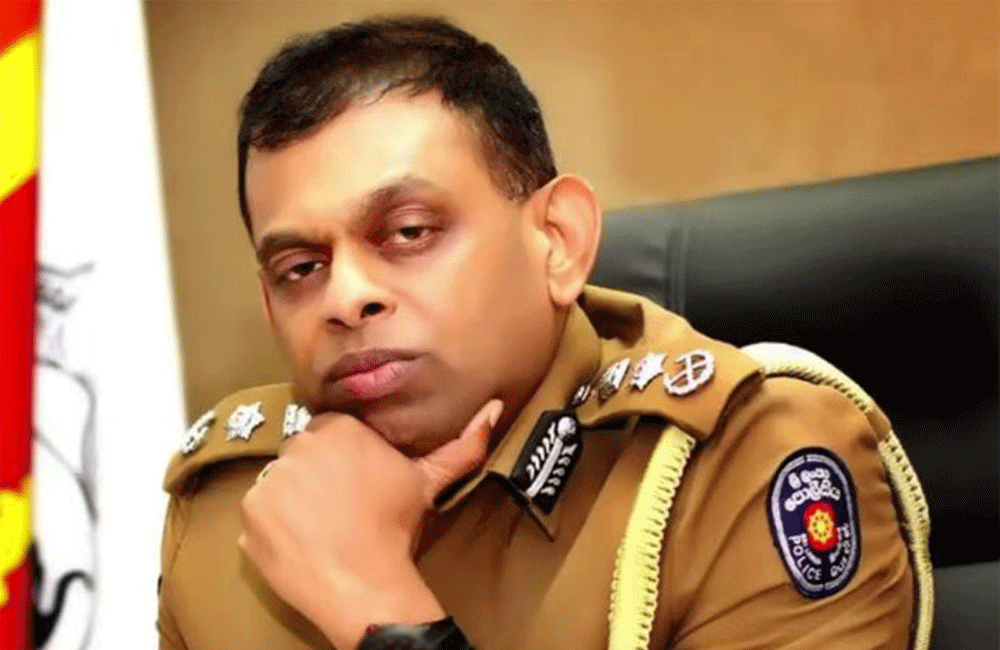
Parliament Initiates Process to Remove IGP Deshabandu Tennakoon
The process for the removal of the Inspector General of Police (IGP) was set in motion with the approval of a proposal in Parliament.
The proposal was presented to Parliament by Attorney-at-Law Lakmali Hemachandra, a Member of Parliament from the National People's Power (NPP).
The motion received overwhelming support, with 151 votes in favor and no votes against.
The proposal which was passed, was signed by 115 Members of Parliament, was submitted to the Speaker.
According to the Removal of Officers Act No. 5 of 2002, the proposal includes 27 charges against the IGP.
Following today's (8) approval, an investigative committee must be appointed to examine these charges.
The committee will consist of a Supreme Court judge appointed by the Chief Justice, the Chairman of the National Police Commission, and an individual of distinguished standing in the fields of law or public administration.
The latter will be appointed by the Speaker with the agreement of the Prime Minister and the Leader of the Opposition.
The Supreme Court judge appointed by the Chief Justice will chair the committee.
If the committee finds the IGP guilty of the charges, the Speaker will have the opportunity to include a motion for the IGP's removal in the parliamentary agenda.
The President can remove the IGP from office only if the motion is approved by a majority of the total number of Members of Parliament, including those not present.

M Modi concludes Sri Lanka state visit
Indian Prime Minister Shri Narendra Modi departed today (06) from Air Force Base Anuradhapura concluding his State visit to Sri Lanka. The Indian Premier embarked on a tour to Sri Lanka following an invitation from President Anura Kumara Disanayake.
This visit underscores the enduring relationship encapsulated by the theme “Friendship of Centuries, Commitment to a Prosperous Future,” further solidifying the bonds between India and Sri Lanka.
This marks the Indian Prime Minister's fourth visit to Sri Lanka, which has further enhanced the economic, cultural, and historical relations between the two nations, while also reinforcing their multifaceted partnership. This visit by the Indian Prime Minister reinforces Sri Lanka's important role in India's “Neighbourhood First Policy” and ‘MAHASAGAR’ vision concerning diplomatic relations.
This state visit is anticipated to yield significant results on various collaborative initiatives, fostering a path towards mutual growth and development. The citizens of Sri Lanka will soon be able to witness the fruitful outcomes of these partnerships, and Indian Prime Minister Shri Narendra Modi's visit will mark a significant milestone in the government's pursuit of sustainable development focused on the needs of the people.
Accompanying Indian Prime Minister Modi were Indian External Affairs Minister Dr. S. Jaishankar, National Security Advisor Ajit Doval, Foreign Secretary Vikram Misri and a delegation of senior officials from the Indian government.
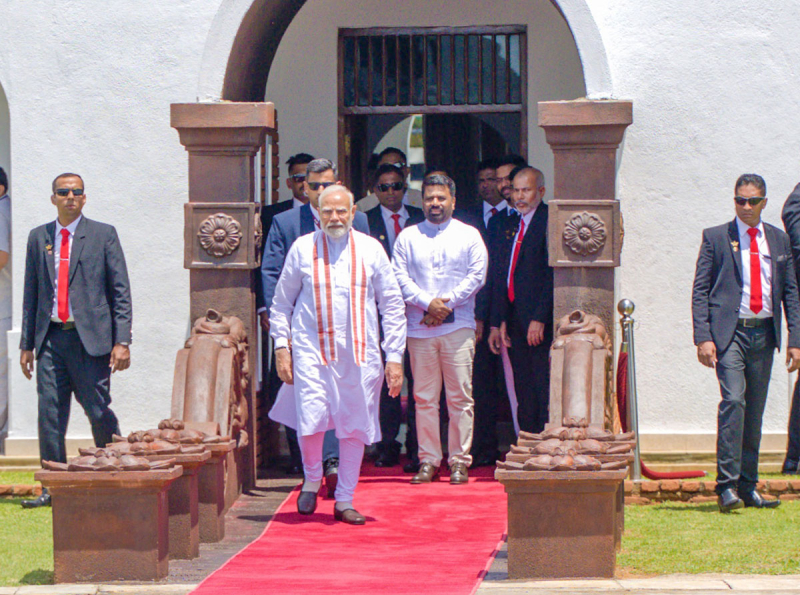

Sri Lanka Urges US to Reconsider Tariff Policies
Sri Lanka's Minister of Foreign Affairs, Foreign Employment, and Tourism, Vijitha Herath, and the US Ambassador to Sri Lanka, Julie Chung, held talks on addressing the impact of the United States' tariff policies on Sri Lanka.
During the meeting, both parties extensively reviewed the current trade relations between Sri Lanka and the United States, emphasizing the potential effects of the new US tariff policies on Sri Lanka's export sector.
The necessity to reassess these policies was highlighted, especially considering Sri Lanka's ongoing recovery from the severe economic crisis faced in 2022 and the implementation of International Monetary Fund programs without hindrance.
Ambassador Chung also made a note of the meeting on X (formerly twitter) noting that she had a productive discussion with Foreign Minister Vijitha Herath on rebalancing Sri Lanka’s trading relationship with the U.S.
She had emphasized the importance of reciprocal treatment for U.S. exports.
A fair, balanced trade relationship supports economic growth, creates jobs, and strengthens industries in both our countries, she noted.
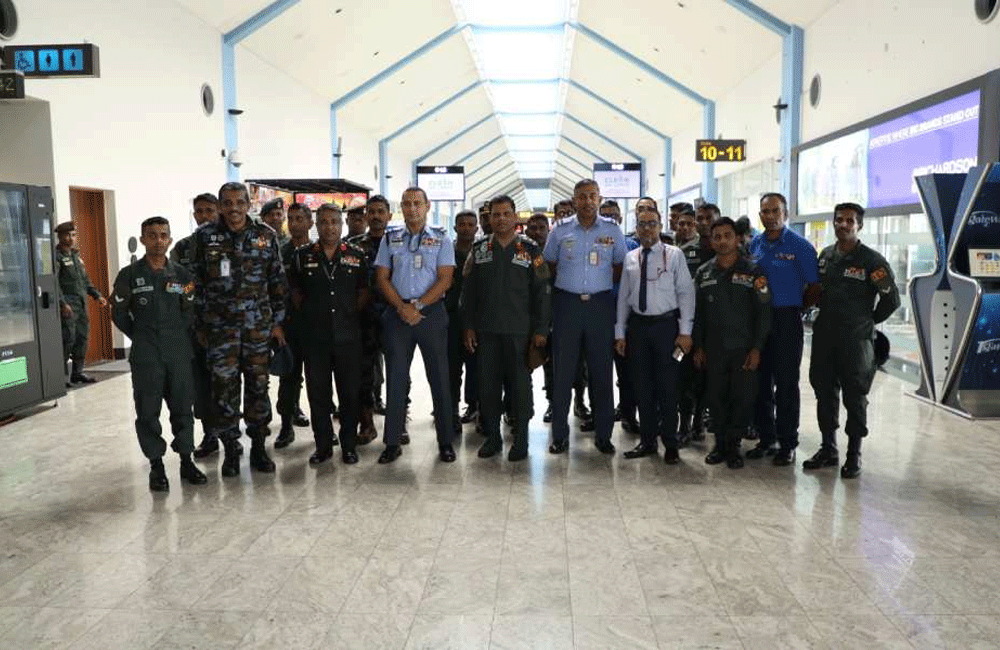
Sri Lanka sends Tri-Forces relief team to help Myanmar
A 26-member specialized medical and disaster relief team from Sri Lanka’s tri-forces, led by Brig. Punya Karunathilake, departed for Myanmar today (April 5) to assist earthquake-affected communities.
The mission, coordinated by the Defence Ministry under the directive of President Anura Kumara Dissanayake.
“Myanmar, a Buddhist nation that played a key role in the re-establishment of Theravada Buddhism in Sri Lanka, is receiving not only disaster and humanitarian aid but also supplies, including medical
assistance. These supplies were donated and gathered by the people of Sri Lanka across the island, under the guidance of the Venerable Maha Sangha, led by the Chief Prelates of the three Buddhist chapters and are being sent to the Myanmar government,” the Ministry of Defence issuing a statement said.
The Foreign Ministry and SriLankan Airlines also supported the operation, the statement said.
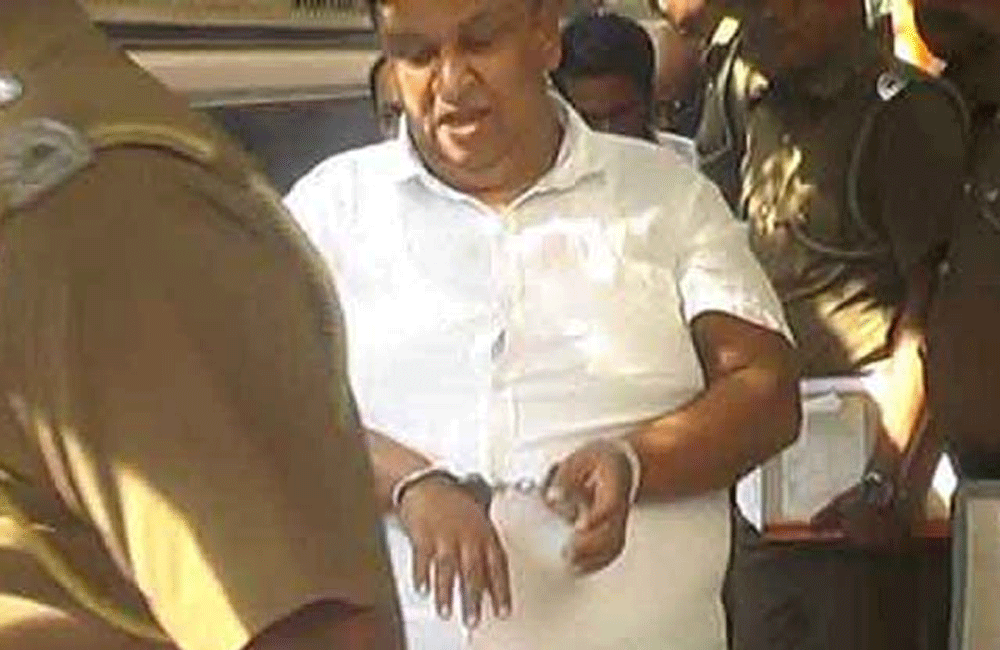
MP Chamara Sampath further remanded
New Democratic Front (NDF) Parliamentarian Chamara Sampath Dassanayake has been further remanded until 21 April by the Badulla Magistrate’s Court.
MP Dassanayake is accused of misappropriating a sum of Rs. 1 million of the Uva Provincial Council in 2016.
MP Chamara Sampath Dassanayake was taken into custody on March 27, over three separate corruption-related cases.
The Colombo Magistrate’s Court previously granted bail in two of the cases but ordered him placed in remand custody over the third charge.
The allegations stem from his tenure as Chief Minister of Uva Province in 2016.
According to the Commission to Investigate Allegations of Bribery or Corruption (CIABOC), Dassanayake had solicited funds from three state banks, claiming they were intended to provide bags for preschool children in the province.
Two banks complied, granting him Rs. 1 million and Rs. 2.5 million, which were later transferred to his personal foundation account.
However, when a third bank refused to provide funds, Dassanayake reportedly retaliated by withdrawing the Uva Provincial Council’s fixed deposits from that institution.
The Bribery Commission filed a case against the MP, citing the government incurred a financial loss of Rs. 17.3 million due to his actions.
After reviewing the evidence, the Colombo Magistrate’s Court ruled that while Dassanayake could be released on bail for two of the charges, he would remain in remand custody for the third.
Accordingly, this morning MP Chamara Sampath Dassanayake was once again produced before the Badulla Magistrate’s Court when the case was taken up for hearing.
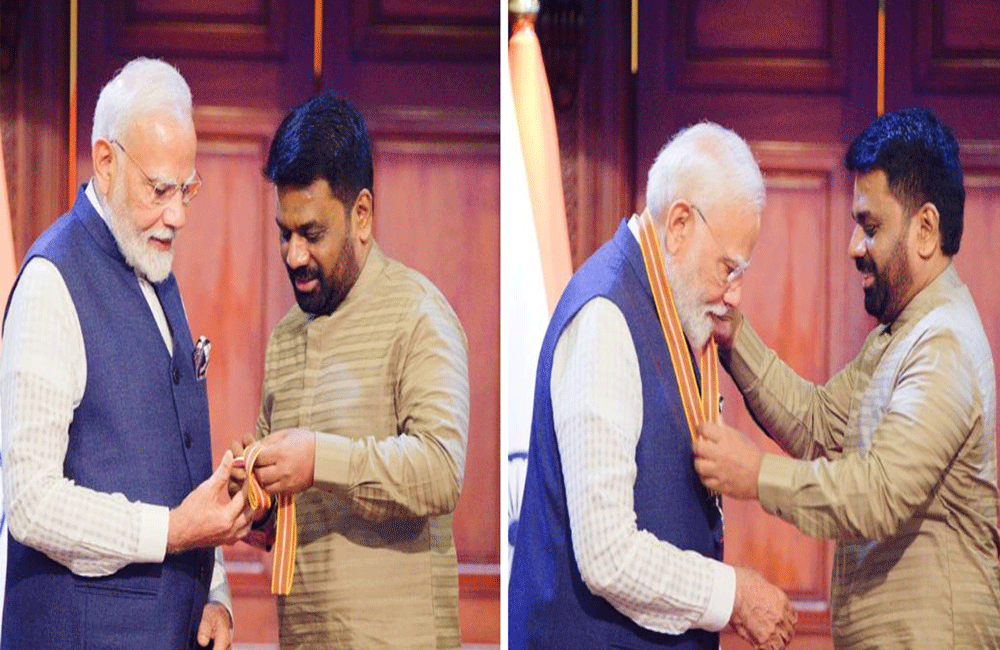
'Matter Of Immense Pride' : Tribute to 1.4 Billion Indians, Says Modi On Sri Lanka's Highest Honor
"It is a matter of great pride for me to be awarded the ‘Sri Lanka Mitra Vibhushana’ by President Dissanayake, said Indian Prime Minister Narendra Modi after he was conferred with Sri Lanka's highest civilian honour.
This esteemed award, which symbolizes the profound friendship and historic ties between India and Sri Lanka, was accepted by Prime Minister Modi with immense pride.
Prime Minister Modi expressed that this honor is not solely his but a tribute to the 1.4 billion people of India.
He conveyed his heartfelt gratitude to President Dissanayake, the Government, and the people of Sri Lanka for this significant recognition.
"This honour is not mine alone - it is a tribute to the 1.4 billion people of India. It symbolises the deep-rooted friendship and historic ties between the people of India and Sri Lanka," stated Prime Minister Modi.
He further extended his sincere thanks to the Sri Lankan leadership and its citizens for bestowing this prestigious accolade.
This accolade recognizes Prime Minister Modi's significant contributions to strengthening the bilateral ties and fostering goodwill between the two nations.
The Sri Lanka Mitra Vibhushana is a Sri Lankan honour, for Heads of State and Heads of Government with which Sri Lanka has friendly relations "in appreciation of their friendship towards and solidarity with the people of Sri Lanka".
Page 14 of 540